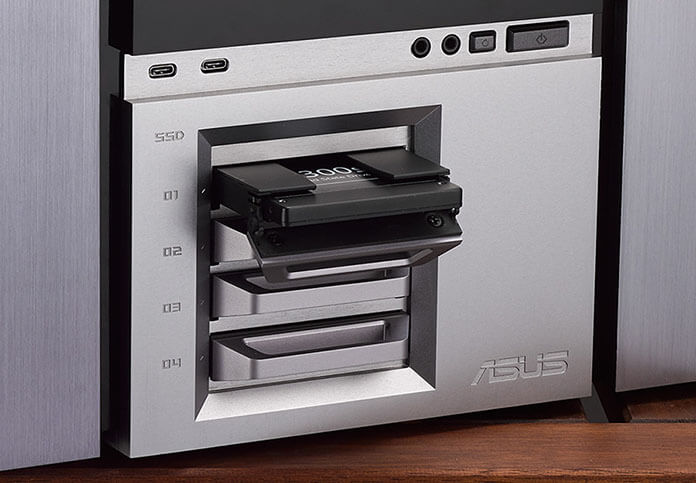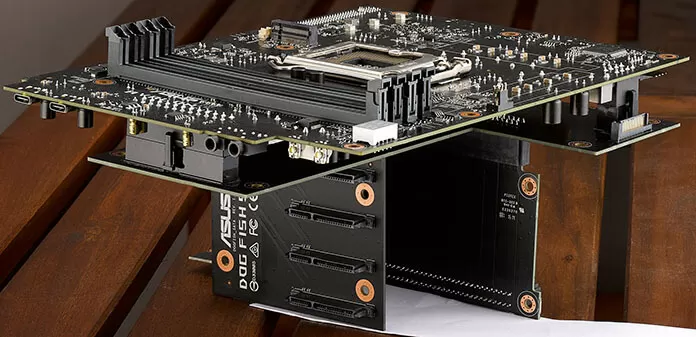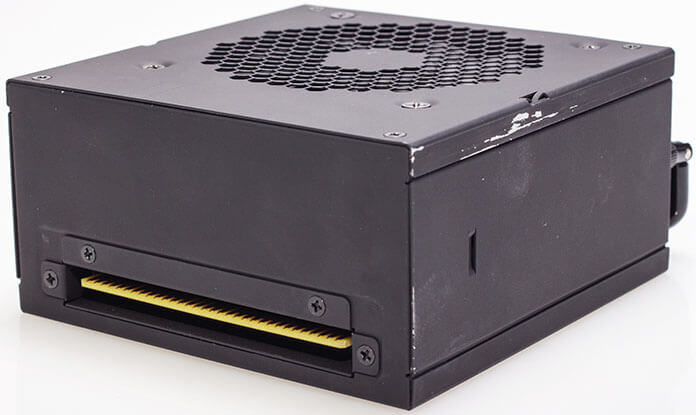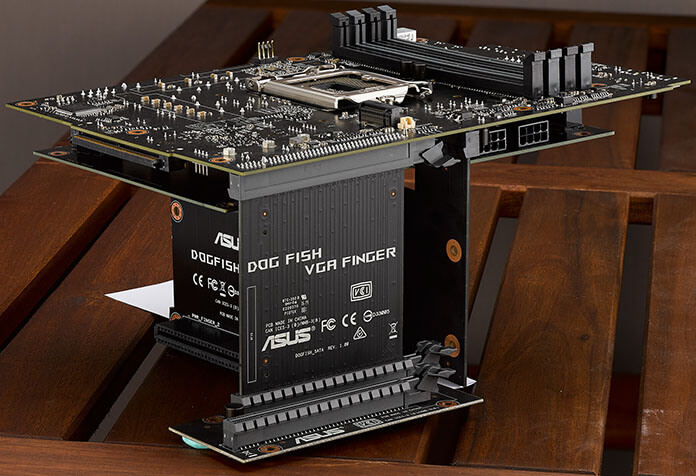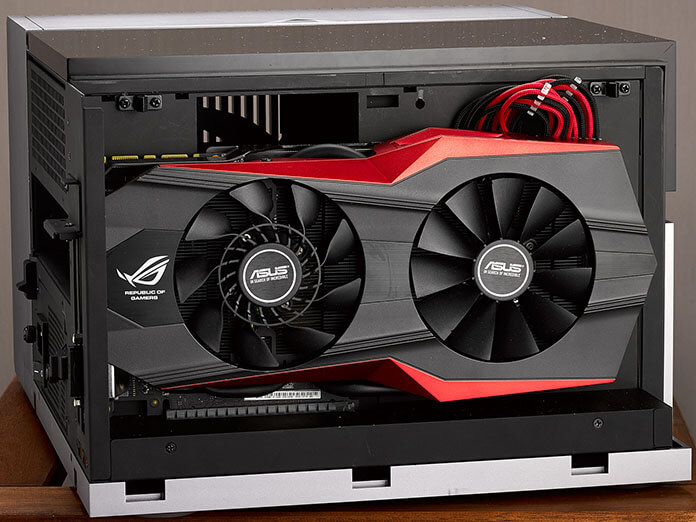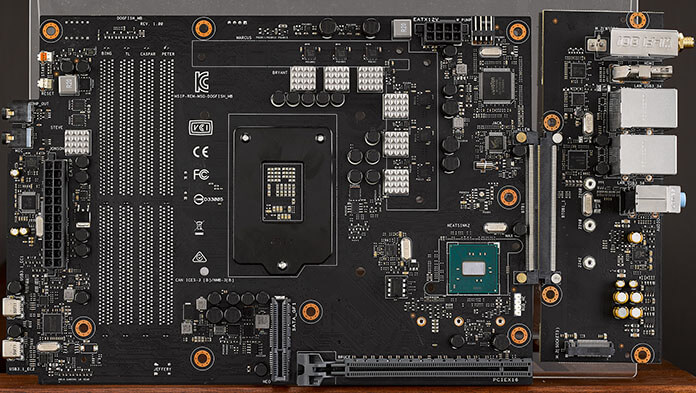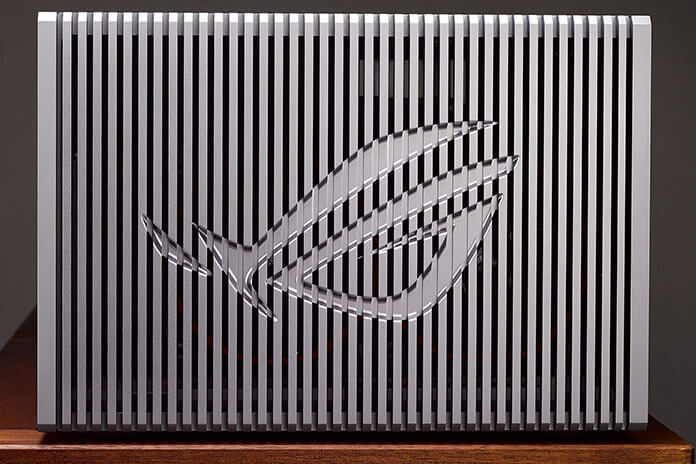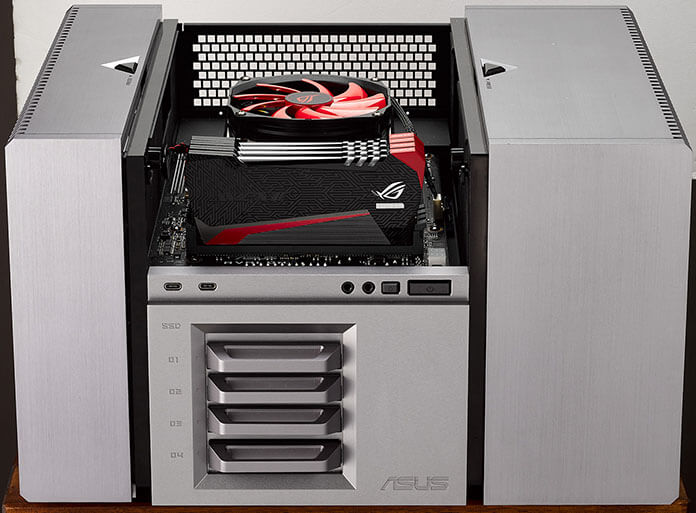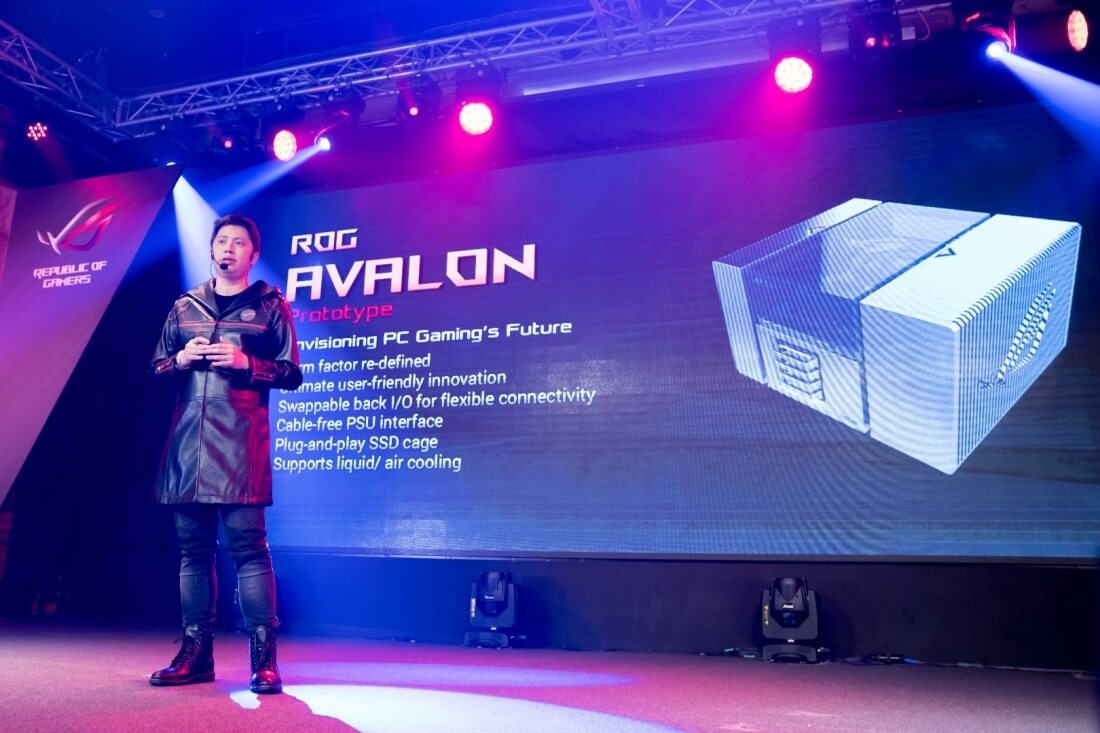The PC hardware of today is exponentially faster than what I had to work with when I first got into computing nearly two decades ago. Several new and innovative technologies have emerged over the years - multi-core processors and flash-based storage, for example - but what really stands out is how much things haven't changed.
The overall design of the PC - a motherboard populated with add-in cards and external drives, all shoved into a case and wired up - has largely gone unchanged for decades. That's something Asus' Republic of Gamers brand is aiming to change.
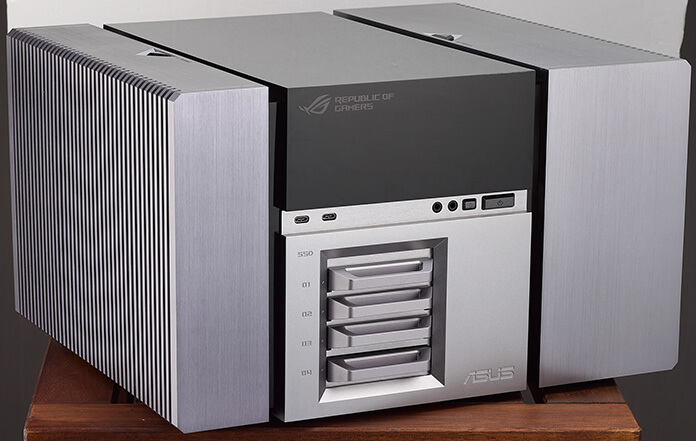
During its Join the Republic press event at Computex 2016, Asus unveiled a platform called the ROG Avalon. With Avalon, Asus said it redesigned the motherboard and case as a single entity rather than as two items in tandem which allowed them to optimize the layout to alleviate the most frustrating aspects of the DIY PC process.
Avalon features PSU, SSD and graphics-adapter boards for plug-and-play simplicity which eliminates most of the "messy" cabling and brings key components to the forefront for easy access (the graphics card still requires external power in this concept). There's also a modular rear I/O panel that can be customized to fit varying needs.
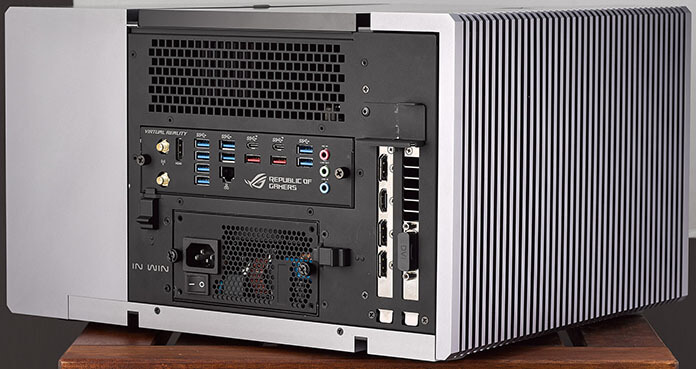
Essentially what we're looking at here is a modular PC concept.
Before you get too excited, keep in mind that this isn't an entirely original idea. Razer unveiled a fully modular PC of its own a couple of years ago called Project Christine which never made it past the concept stage. Asus promises that's not the case here, with the company saying that unlike the purely aspirational concepts often see in the tech industry (Project Christine), this prototype is a working system built on existing technologies that are viable to put into mass production.
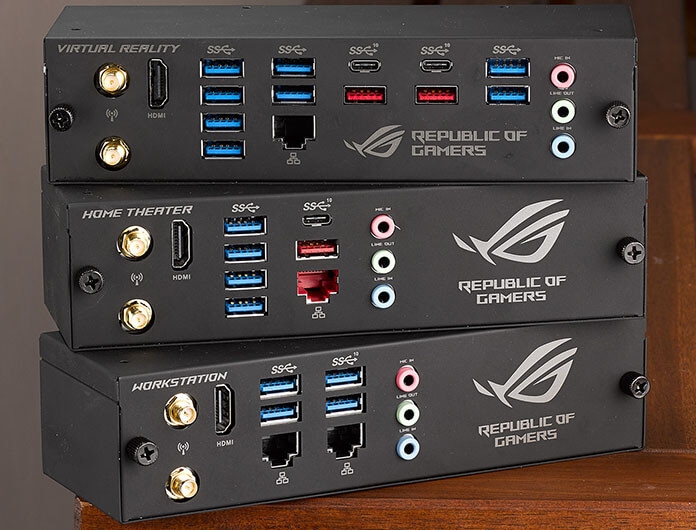
Asus' modular implementation is incredibly impressive but I'm still a bit skeptical. There's a reason the traditional PC structure has persevered for so long - it's an open platform that's relatively simple and doesn't depend on proprietary hardware. Asus would need to get a lot of other hardware players on board for this to succeed and given the overall health of the PC industry, timing alone could be its biggest hurdle.
